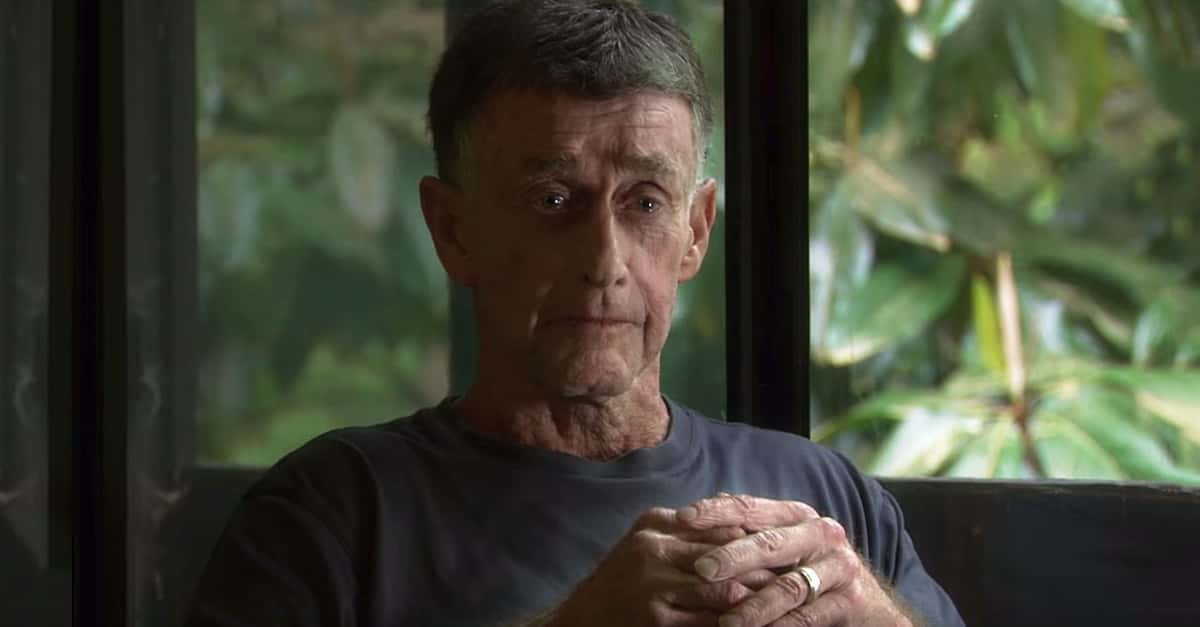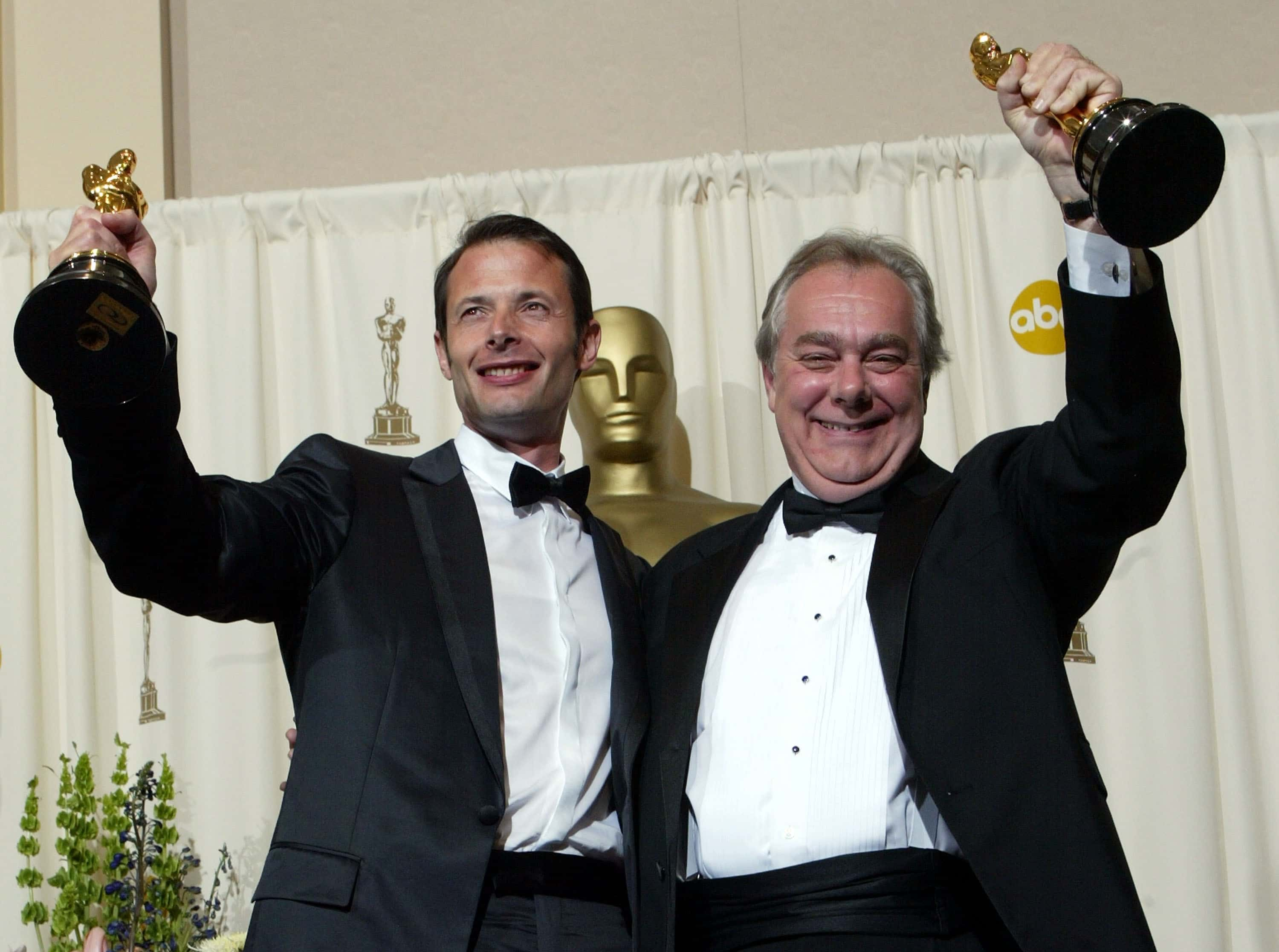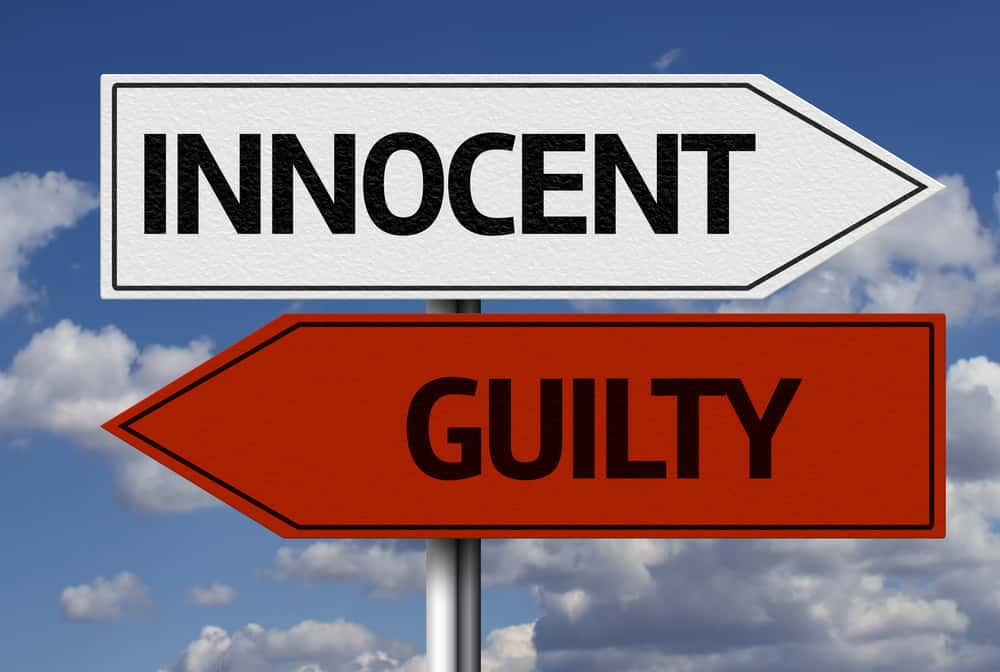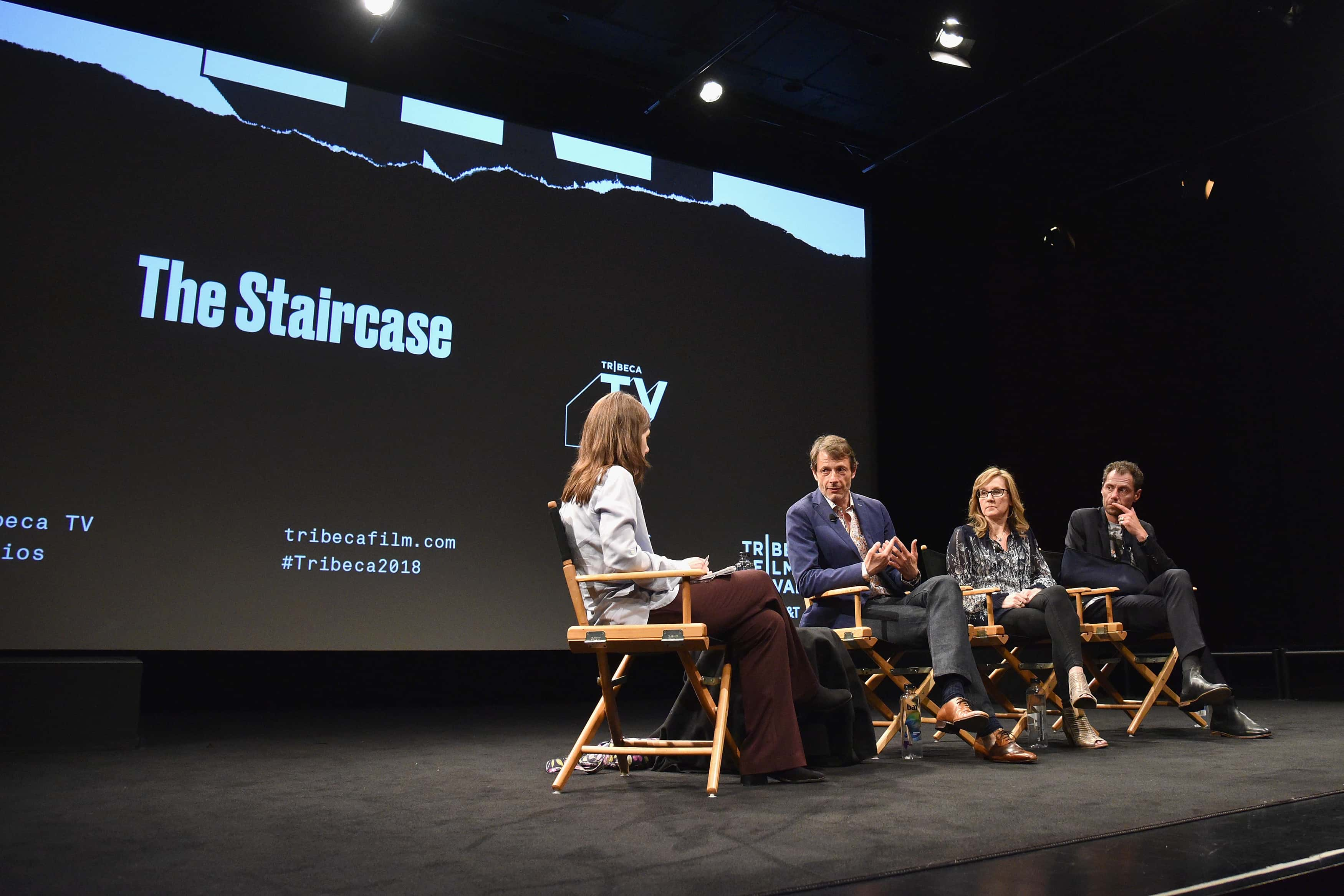In the early morning hours of December 9, 2001, Michael Peterson frantically called 911 to report that he has found the lifeless body of his wife Kathleen at the bottom of a staircase in their Durham, North Carolina mansion. Not long after, Michael Peterson became the prime suspect and was indicted on the charge of killing his wife. Peterson was eventually convicted of first-degree murder and imprisoned. His legal team successfully fought for a retrial due to the improper actions of a key expert witness of the prosecution. Peterson later submitted an Alford plea, which entails that he plead guilty due to the evidence against him, but is still about to assert his innocence. This rare type of plea thereby secured his freedom.
The case served as the subject of the riveting documentary series The Staircase, directed by French filmmaker Jean-Xavier de Lestrade. De Lestrade and his crew are given unprecedented access to Peterson and his defense team as they documented the arduous and lengthy legal proceedings over a period of more than 15 years. The latest installment of the series was released on Netflix earlier this year. Here are some chilling facts about the Michael Peterson trial and The Staircase.
The Staircase And The Michael Peterson Trial Facts
24. Pre-Staircase Acclaim
Before he made The Staircase, Jean-Xavier de Lestrade directed the documentary Murder on a Sunday Morning, which follows the case of Brenton Butler, who was accused of murdering a tourist in Florida in the year 2000. As told in the film, Butler made a confession which he claimed was coerced, and he was eventually acquitted. The film was the winner of the Best Documentary Feature at the 2001 Academy Awards.
23. The Staircase Lampooned
The NBC series Trial & Error is a comedic mockumentary that parodies many notable true crime shows, most notably The Staircase. In the first season of the show, which premiered in 2017, actor John Lithgow appears to portray a character very similar to Michael Peterson. Lithgow’s Larry Henderson character is a writer/poetry professor who is accused of murdering his wife.
22. Original Air Date
Portions of what eventually became the miniseries The Staircase were first aired in the summer of 2004 as part of an episode of ABC’s news magazine show Primetime Thursday. The completed miniseries first aired later that year on French television station Canal+, where it was released with the title: Soupçons (meaning: “Suspicions”). The completed series hit British and American airwaves in 2005, on BBC Four and the Sundance Channel, respectively.
21. Returning to the Scene of the Crime
In light of new developments surrounding the case, de Lestrade made a new installment to The Staircase saga in 2012, entitled The Last Chance. In this new installment, Peterson’s legal team appeal to the courts for a new trial after it comes out that bloodstain analyst Duane Deaver, who was a key witness for the prosecution, had given false and misleading testimony during the case and in other trials. Although it was initially presented as a single feature-length documentary film, it was released as two new episodes of The Staircase when it aired on American television.
 The Staircase II: The Last Chance, BBC
The Staircase II: The Last Chance, BBC
20. A Final Installment
In 2018, de Lestrade released three more episodes of The Staircase, this time for Netflix. This new installment follows Peterson as he and his legal team weigh their options on whether to go through with a new trial or put forward an Alford plea. The first new Netflix episode screened at the 2018 Tribeca Film Festival.
19. Alford Plea
After being released on bail to await a new trial, Peterson is urged by his legal team to submit an Alford plea, which he did in lieu of standing trial. An Alford plea allows the defendant to plead guilty when the prosecution has enough evidence to convict, while still asserting their innocence. The plea is the result of a US Supreme Court case from 1970 (Alford v. North Carolina), where an alleged murderer had submitted a coerced plea. In the end, Peterson entered an Alford plea to the lesser charge of voluntary manslaughter. As he had already served time for his first conviction, he did not have to serve any more time in prison.
18. Military Past
After graduating from college, Peterson took a civilian job with the US Department of Defense in West Germany. He would later serve as a Marine during the Vietnam War. His war experiences led him to write three war-themed novels and he also co-authored two military biographies.
17. Falsified Claims
Peterson was found to have greatly exaggerated some of his war experiences. For instance, he backtracked on his claim that he was injured by shrapnel by later revealing that the injury was actually the result of a car accident. Moreover, during his failed 1999 Durham mayoral bid, it was found by local reporters that his claim of receiving two Purple Hearts was also bogus.
16. Job Worries
At the time of her death, Kathleen Peterson was worried about her job security. She was a high-ranking executive for Canadian-based telecommunications firm Nortel. The once-giant in the field became a major casualty of the dot-com crash. The company had just laid-off 45,000 employees and Kathleen was worried that she herself would lose her position by the end of 2001.

History's most fascinating stories and darkest secrets, delivered to your inbox daily.
15. Dealing with Debt
In addition to Kathleen’s job worries, the Petersons were also experiencing debt problems at the time of the tragedy that ultimately turned the family upside down. They were reported to have $142,000 in 2001. Coupled with the fact that Kathleen was listed as the sole owner of their Durham mansion and that she had a $1.4 million life insurance policy in her name, the prosecution argued that Peterson had killed his wife to alleviate his financial burdens.
14. A House With a Unique History
The 9,500 square foot mansion in Durham, North Carolina in which Kathleen and Michael Peterson resided and where Kathleen was later found dead was a prominent filming location for the 1990 movie The Handmaid’s Tale, an adaptation of Margaret Atwood’s critically acclaimed novel of the same name. Shortly after filming, the house was purchased by scholar and PBS television host Henry Louis Gates Jr., who at the time was teaching at nearby Duke University. The house is currently owned by a psychic, who ironically was not aware of the house’s history or the Peterson case when he purchased it.
13. Law School Case Study
Thomas B. Metzgoff, a Duke University law professor and a neighbor of the Petersons at the time of Kathleen’s death, includes The Staircase on his syllabus. Metzgoff believes the documentary expertly demonstrates how criminal defense cases develop and unfold.
12. Book Deal Thwarted
Michael Peterson reportedly had a book deal lined up to share his side of the story. It is believed that Peterson’s penchant for writing notes throughout the trial was to aid a future book to be published by Harper Collins. However, after Peterson was found guilty of murder, the publisher rescinded their offer.
11. Eerie Parallels to an Earlier Tragedy
Perhaps the biggest twist in The Staircase saga is the revelation that Kathleen Peterson’s death was, in fact, the second such tragic incident to happen on a staircase involving Michael Peterson. In 1985, Elizabeth Ratliff was found dead at the bottom of a staircase in her West Germany home. Ratliff was friends with Peterson and his first wife Patricia, who also lived in Germany at the time.
The Petersons even had dinner with Ratliff the night before she was found dead and Michael Peterson is thought to be the last person to see her alive. Following her death, the Petersons would adopt Ratliff’s two young daughters. Controversially, Ratliff’s death was brought up in the Michael Peterson murder trial. Ratliff’s body was exhumed and a second autopsy was performed, with the medical examiner concluding that her death was a homicide.
10. Featured in Other Shows
In addition to de Lestrade’s The Staircase, the Michael Peterson case has also been featured on true crime shows Forensic Files, The New Detectives, American Justice, and Dateline NBC. The case also inspired an episode of the CBS police procedural drama Cold Case.
9. The Judge Weighs In
At the end of the final installment of The Staircase, Judge Orlando Hudson—who presided over the initial trial, the hearing for a new trial, and the final Alford plea hearing—is finally interviewed by de Lestrade. Although Judge Hudson feels that Peterson’s eventual freedom is proof that the criminal system does indeed work, he is regretful of two aspects of the initial trial. Hudson tells de Lestrade, “There were things that I would have changed. I think, over time, the introduction of the death in Germany was very prejudicial to the defendant. I thought that all the homosexual evidence—however it was used—would have been unduly prejudicial to the defense, and probably should not have come into evidence.”
8. De Lestrade’s “True” Intentions
Although most true crime television series are concerned with solving a mystery and ascertaining the truth, these were not the intentions of de Lestrade. At a Q & A session following the premiere of the final installment of the series at the 2018 Tribeca Film Festival, de Lestrade said, “The purpose has never been to look for the truth. Or to look for what happened that night. It was just to look at the way the justice system would treat the case, and it took 17 years.”
7. The Case Gets Personal
During the initial murder trial, the prosecutors brought up Michael Peterson’s bisexuality. Bringing up this aspect of Peterson’s personal life was seen by the defense team as irrelevant considering that Kathleen Peterson was aware and supportive of her husband’s sexuality. There was also a fear that it might unfairly sway the jury to be against Peterson, but as pointed out by de Lestrade and Metzgoff, Durham County, home to many prominent universities, is one of the more progressive places in North Carolina. The revelation, however, did begin to turn Kathleen’s sister Candace Zamperini away from supporting Michael in the case.
6. Being Part of the Team
Initially, de Lestrade was working with both the prosecution and defense teams in the case, even planning to have two different crews following both sides. However, months into the case, the prosecution stopped working with the filmmaker.
There was concern that filming the interactions between Michael Peterson and his defense team might nullify client privilege—since they were witnessed by a third party, the prosecution could potentially ask de Lestrade for his tapes of the defense team's conversations with Peterson. To avoid this, David Rudolf, the lead lawyer for the defense, suggested that the film crew actually be hired as a part of the defense team, so that client privilege would still apply and they would not be required to give up the tapes.
5. Hiding Footage
Despite being protected by client privilege, the prosecution still requested de Lestrade and his crew hand over footage of their work with Peterson and his legal team. As a result, de Lestrade would ship completed tapes to Paris, France and away from the DA and the prosecution.
4. De Lestrade on Peterson
Even though de Lestrade was not in pursuit of the truth, he still feels that Michael Peterson was not guilty of the crime he was accused of committing. In an interview with Vulture, he explained, “I am not saying that I think Michael Peterson is innocent. What happened that night is still a huge mystery. But during the five-month trial, his guilt was not proven to me.”
3. Hoot-dunit
Longtime fans of The Staircase will be very familiar with an alternate cause of Kathleen Peterson’s death dubbed “The Owl Theory.” The Owl Theory proposes that Kathleen Peterson died as the result of being attacked by an owl and subsequently hitting her head on one of the steps of the staircase. In fact, post-mortem examinations revealed that her hair contained microscopic owl feather remnants and the lacerations seemed to resemble marks that would be created by owl talons. Michael Peterson’s defense team, however, did not pursue this theory as grounds for a re-trial.
2. Finding Love in an Unexpected Place
During the filming of the initial installment of The Staircase, Michael Peterson began a relationship with Sophie Brunet, who served as an editor for the documentary crew. Their relationship lasted all throughout the first trial, Peterson’s subsequent imprisonment and release, fight for a new trial, and Alford plea. However, the relationship didn’t last much longer after Peterson’s regained freedom—the two split in May 2017. Their near 15-year relationship was never mentioned during The Staircase.
1. Connection to Another True Crime Series
The Staircase and the Michael Peterson case have an interesting connection to another case that inspired a fellow Netflix true crime docuseries. Michael Peterson’s lead defense attorney, David Rudolf, was the clinical law professor of Jerry Buting, who, along with Dean Strang, formed the defense team for Steven Avery, the wrongly accused murderer at the center of Making a Murderer.


































